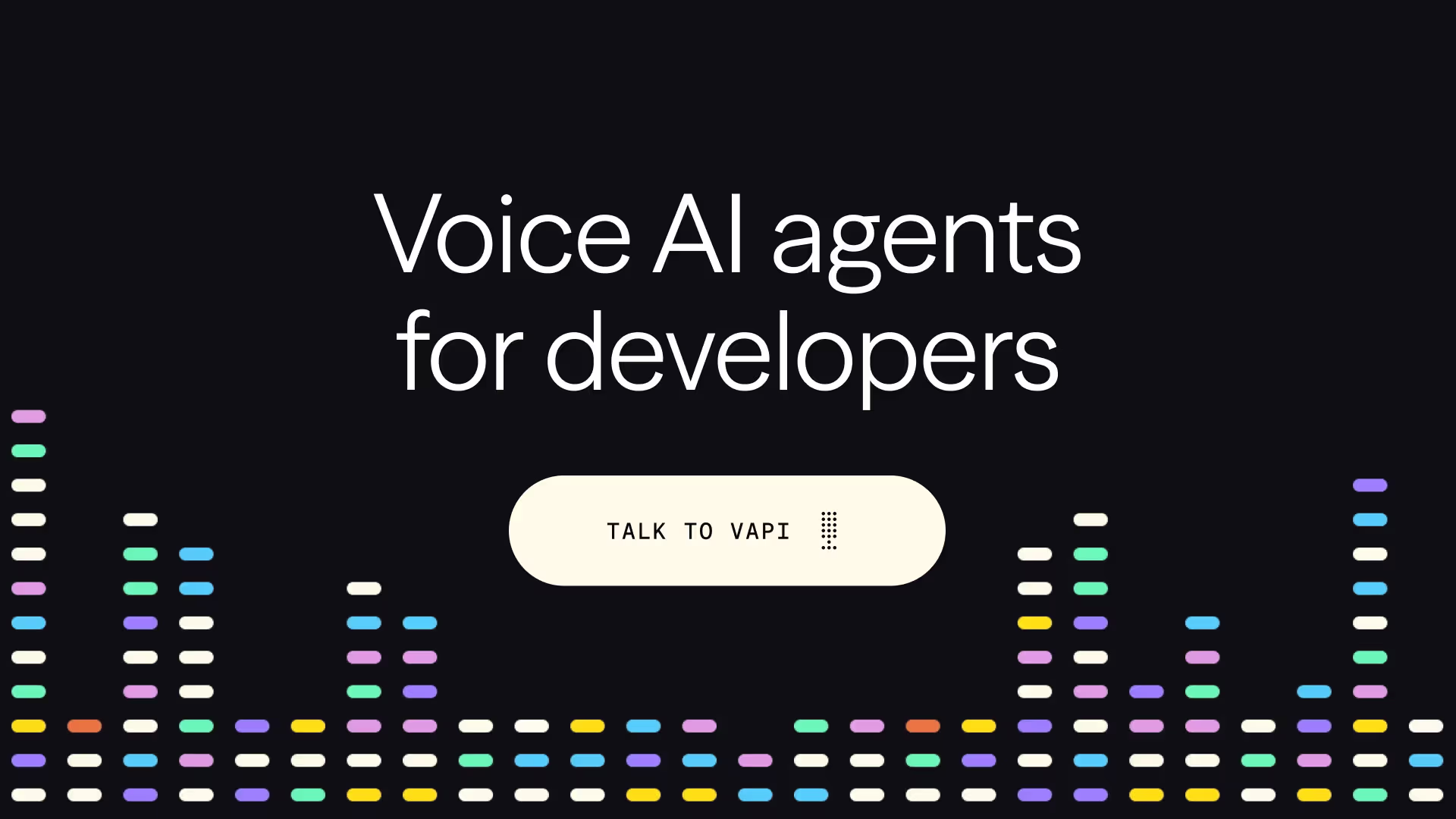
Vapi envisions a future where advanced voice AI technology is seamlessly accessible and scalable, transforming how businesses and developers interact with customers through real-time, natural conversations over the phone.
We are dedicated to empowering developers and organizations by delivering a modular, API-native platform that abstracts complexity and enables the creation of sophisticated, customizable voice AI agents. Our approach blends cutting-edge speech recognition, natural language understanding, and text-to-speech technologies into a unified system that scales from startups to enterprises.
By driving innovation in voice AI workflows, multi-language support, and integration capabilities, Vapi is building a new paradigm for automated voice interactions that enhances human experiences and streamlines business operations at an unprecedented scale.
Our Review
We've been watching the voice AI space heat up for years, but Vapi caught our attention for doing something genuinely different. While most companies are building monolithic voice assistants, Vapi built what feels more like the "Shopify for voice AI"—a developer-first platform that lets you mix and match the best AI components to create custom phone agents.
What struck us immediately is how they've solved the classic build-vs-buy dilemma. Instead of forcing you to use their entire stack, Vapi lets you cherry-pick your speech-to-text provider (maybe Deepgram), your language model (perhaps GPT-4 or Claude), and your text-to-speech engine (ElevenLabs, anyone?). It's like having a Swiss Army knife where you can swap out individual tools.
The Developer Experience That Actually Works
We tested Vapi's platform ourselves, and the developer experience is refreshingly clean. You can spin up a basic voice agent in minutes using their drag-and-drop builder, or dive deep with their Python and TypeScript SDKs if you need custom workflows. The fact that they support both no-code users and hardcore developers without compromise is impressive.
Their automated testing suite deserves special mention—being able to run A/B experiments on voice agents before going live feels like table stakes now, but most platforms still don't offer it. Vapi does, and it works well.
Where It Really Shines
The multi-language support (100+ languages) and enterprise scalability caught our eye. We're talking about a platform that can handle millions of calls, which puts it in a different league from many voice AI startups that struggle past prototype stage.
The integration ecosystem is solid too—40+ third-party apps including the usual suspects like Salesforce and Google Calendar. But what we really appreciate is the custom API tooling that lets you connect virtually anything to your voice agents.
Who Should Pay Attention
Vapi isn't for everyone, and they're honest about it. If you're looking for a plug-and-play voice assistant, there are simpler options. But if you're a developer or engineering team that needs to deploy sophisticated phone-based AI agents at scale—whether for customer support, appointment scheduling, or lead qualification—Vapi feels like the real deal.
With their recent $20 million Series A and Y Combinator pedigree, they've got the runway to keep innovating. For companies serious about voice AI automation, Vapi deserves a spot on your shortlist.
Feature
Modular AI Stack with multiple providers for speech-to-text, NLU, and text-to-speech
No-Code drag-and-drop builder and developer SDKs
Workflow design for simple assistants and complex multi-step flows
Automated testing and A/B experimentation tools
Multi-language support in over 100 languages
Extensive integrations with 40+ apps and custom API tooling
Enterprise scalable platform handling millions of calls








